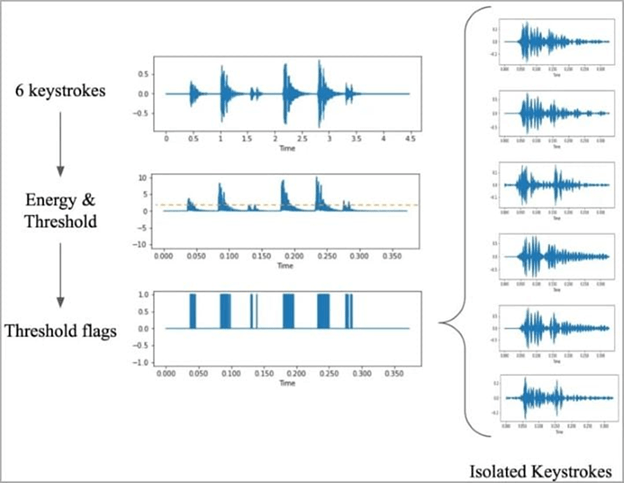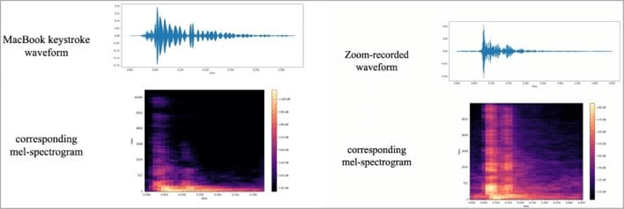 (1)-min.png)
Researchers at Cornell University have discovered a brand-new manner for AI gear to scouse borrow your information — keystrokes. A new research paper details an AI-driven attack that could steal passwords with as much as ninety-five% accuracy through listening to what you type to your keyboard.
The FBI has warned that hackers are running wild with generative synthetic intelligence (AI) gear like ChatGPT, speedy growing malicious code and launching cybercrime sprees that might have taken some distance greater attempt inside the past.
In a recently posted paper submitted by means of a studies team (made from individuals from 3 British universities), it was located that they had been able to build a deep studying version to concentrate to keystrokes on a keyboard and then decode what keys have been pressed. The self-training AI, called CoAtNet, could one way or the other record the unique wavelengths of every key and postulate which key become being depressed at a scarily high accuracy of 95 percent.

To acquire that accuracy, the team truly used a everyday MacBook Pro for typing, with an iPhone 13 Mini sitting 17cm away. If that wasn't concerning sufficient, CoAtNet changed into able to acquire an accuracy of 93% and 92% whilst recording through Zoom and Skype respectively.

The research and CoAtNet proves that acoustic-based attacks are rather without problems developed and perilous if utilized by nefarious people. CoAtNet changed into tremendously smooth to teach, because it most effective required the British crew to gather statistics via pressing 36 keys at the MacBook Pro 25 times. The researchers then produce waveforms and spectrogram pix that made how each of these keystrokes sound visually identifiable, which CoAtNet ought to manner and study from.

However, the underlying idea of AI being used for nefarious purposes, which include tries to crack passwords, is manageable. Here's why:
Deep Learning: AI models, specifically those constructed on deep studying architectures, can recognize patterns in massive datasets higher than any human. If given sufficient data on password advent conduct, an AI can predict or bet passwords more efficaciously than traditional strategies.
Phishing Attacks: AI can also be hired to craft convincing phishing emails or messages to trick human beings into revealing their passwords.
Keystroke Dynamics: Some researchers have looked into the use of AI to determine passwords based totally at the rhythm and timing of keystrokes.
Brute Force Attacks: While brute pressure assaults (attempting each feasible password combination) are computationally expensive and may take a long term, AI can optimize these attempts or prioritize sure patterns based totally on recognized human behavior.
Data from Previous Breaches: If an AI has access to passwords from preceding breaches, it could analyze patterns and use that knowledge to are expecting new passwords or prioritize guesses
Diversity in Password Creation: People use a extensive form of password introduction methods, including random password mills. Predicting such randomly generated passwords is sort of impossible except there is a flaw within the technology method itself.
Two-Factor Authentication (2FA): Many services now require 2FA, this means that even though an AI can wager a password, it would nonetheless need get right of entry to to the second one authentication component (like a textual content message code or authentication app).
Rate Limits & Lockouts: Most present-day systems have protections against rapid, repeated login tries, making brute pressure attacks useless.
Changing Passwords: People change passwords, and services often spark off or require customers to replace passwords periodically.
Encryption & Hashing: Properly saved passwords are hashed, and from time to time salted, making it computationally difficult for even effective computers to opposite-engineer the original password from the stored statistics.





